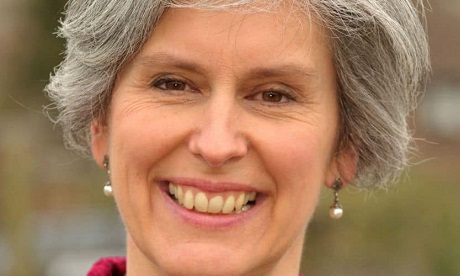Pope Francis took a risk in inviting an Anglican woman bishop Bishop Jo Bailey Wells to address him and his advisory Council of Cardinals, Wells says.
Nonetheless, she hopes the Catholic Church will continue to explore the topic of women’s leadership with “courage”.
“I’m aware … that to many such an opportunity feels rare, if not historic. I’m thankful for the privilege, and equally want to honour the risk Pope Francis surely took in welcoming it” she wrote.
Wells – who is the deputy secretary-general of the Anglican Communion – was one of three women to meet with Francis and his so-called “C9” group of nine cardinals on 5 February.
The C9 meet each quarter to advise Francis on church governance.
The group’s last two meetings have focused on the role of women in the church.
Ecumenical engagement
Including both women and an Anglican woman bishop for the first time ever at the usually all-male meeting suggests Francis sees the value of ecumenical engagement.
That engagement is “not only for collaboration between churches but for listening and learning from each other” Wells says.
According to Wells, Salesian Sr Linda Pocher (from Rome’s Pontifical Faculty of Educational Sciences “Auxilium”) organised the session for Francis.
Ordained women
Pocher asked her – as an Anglican woman bishop – “to speak to the story of the ordination of women in the Church of England and in the Anglican Communion, offering a personal perspective as well as the broader ecclesial journey” Wells said.
Francis has expanded the Catholic Church’s dialogue with both the Anglican Communion and with women’s ministries throughout his papacy.
Wells said she told Francis and the C9 the story of Florence Li Tim-Oi who (because of extenuating circumstances) in 1944 became the first woman to be ordained to the Anglican priesthood.
At the time, it was impossible for male priests to visit her Chinese congregation in Macau.
Nearly 50 years later in 1992, the Church of England’s General Synod voted to ordain women – though certain parishes don’t have to accept ordained women as priests.
In Rome, Wells said, she discussed the “levels of decision-making in regard to women in the three orders of deacon, priest and bishop” with the pope and cardinals.
She said the pope and cardinals “listened graciously, evidenced from their questions and the discussion which followed”.
In addition, she said she is impressed by the ongoing synod on synodality, where topics include questions about ordaining women to the diaconate and priesthood.
The “urgent need” for expanded roles for women’s ministry, as the synod’s synthesis report described it, is expected to top the agenda when synod delegates reconvene in Rome this October.
“We might expect that, whatever the path ahead in terms of women and ordination, the Spirit will be at work to affirm and harness the gifts and graces invested in women for the sake of the whole body of Christ” said Wells of the synod.
Pocher said after the women met with Francis and the C9 that she believes that Francis is “very much in favour of the female diaconate”. Women’s ordination remains out of bounds for him however.
Source
Additional reading



